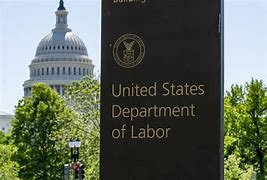Below is a review of the posts on Facebook and LinkedIn from the past week. You can check out the full posts by clicking on the links.

The post on Sunday 11/17/2024 told us Court says HR generalist with layoff during medical leave has no ADA claim. Again, facts matter. A federal appeals court held in mid-October that an HR generalist who was laid off while taking an extended, unpaid leave of absence to recover from a bone biopsy surgery did not show that Credit One Bank discriminated against her in violation of the ADA. Shields was approved for leave under the ADA because she was not eligible for FMLA leave. Her return to work was extended but, before her return date, Credit One called her to its offices and informed her that her position was being eliminated. She sued, claiming that the termination violated the ADA. A federal trial court granted summary judgment to Credit One and the appellate court affirmed. It found that the bank “proffered a legitimate, nondiscriminatory reason” for the termination. What they said is in the post, along with the facts in Credit One’s favor.
You know that the ADA requires employers to provide reason accommodation to covered employees with a disability who can perform their essential job functions with accommodation. Is unpaid leave an option under the ADA? Sometimes – see the post.
Here Credit One granted unpaid leave as an accommodation but nonetheless eliminated the plaintiff’s position while she was on that leave. Shields claimed that Credit One failed to produce evidence supporting its rationale for her discharge. The court did not agree – see the post. The court also pointed out other facts undercutting her argument; they are in the post. The court also discussed the timing of discharge relative to her request for extension of her leave – that too is in the post.
The court involved here does not govern cases in PA, but in cases from the 3rd Circuit Court of Appeals do. In 2019, that court dealt with a case where the University of Scranton was alleged to have discriminated when it fired an employee who made two accommodation requests because the employee received poor performance reviews both before and after the requests were made.
TAKEAWAY: Employers must know their obligations relative to reasonable accommodation and ensure there is no retaliation – but only lawful actions thereafter.

The post on Monday 11/18/2024 asked: What should employers do when doubting an employee’s FMLA eligibility? Generally, for employees to be granted leave under the FMLA, an employer must obtain a certification issued by either the healthcare provider or a family member’s provider. But if an employer requests a second opinion because it doubts the first opinion’s validity, then the employer may choose the provider that issues the second opinion. There are limits on the who can issue that second opinion – see the post. And if the original and second opinions conflict, the employer can require a third certification from a healthcare provider selected by both the employee and the employer. If there is a third opinion, what is the effect? Who pays? What is included in that payment? And what happens to the FMLA leave while the second or third opinions are pending? See the post for all of those answers.
And while an employer may require employees to recertify serious health conditions, it can only do that once every 30 days or the amount of time the certification states the employees can’t work, whichever is longer. How long the employer must wait if the time stated is indefinite is in the post (with the exception also noted in the post).
What if the FMLA certification is vague, nonresponsive, or incomplete? The employer must tell the employee what additional information is necessary to make certification legally sufficient. How long the employee has to cure any deficiencies, and the effect of any failure to do so, is in the post. If the employer has a valid reason to doubt the certification’s authenticity or if clarification is needed, the employer may contact the healthcare provider only for limited purposes as noted in the post. That contact can only be made by a healthcare provider, HR professional, leave administrator, or management official; one specific person may NOT make that contact. See the post for who that is – along with a best practice relative to communications with the healthcare provider.
TAKEAWAY: Just as employers must know what their obligations are relative to FMLA leave, so too they must know what they can and cannot do if they have doubts as to the employee’s eligibility for such leave. Consult an employment lawyer with any questions.

The post on Tuesday 11/19/2024 asked: How early is too early to decorate for the holidays (in your condo or homeowners’ association, that is)? The answer may come down to where you fall in one of two camps: CBS or CVS. If you’re team CBS—the network that broadcasts the Macy’s Thanksgiving Day parade—you feel that the holiday season starts on Thanksgiving morning, when Santa barrels down Central Park West in his sled. At that very moment, it’s buh-bye decorative gourds, hello holiday lights. On the other hand, plenty of folks are team CVS—the drugstore chain that has been known to stock holiday decor alongside lawn chairs as early as August, a retail move known as “Christmas creep,” designed to extend the holiday shopping season. For these hard-core holiday enthusiasts, it’s never too soon to get jolly.
But if belong to a (condo or) Homeowner’s Association (and over 75.5 million Americans do!), the question of when to put up holiday decorations may not be yours to ask. HOAs tend to have rules and restrictions that deal with where you can put up decorations, when, sound level, and must more as noted in the post. The HOA can issue fines if you violated the rules or restrictions (like the Flrid man who was fined $1,000 in 2002 – what he did is in the post).
If you don’t live in an HOA, you may not get fined for decorating too early, but you will get judged by others. In the spirit of peace on earth and goodwill toward man, experts weighed in.
First up: The Rules Are: There Are No Rules This view follows religious tradition, but also knows the under secular etiquette, there are no rules. A general guideline is in the post. For one designer, the answer is early and late. For the past 10 years, he and his husband have been decorating their tree on Halloween and taking it down as noted in the post. This year, for the first time, they added outdoor white lights around several trees in their yard. The expert was asked if people question him about his decision to put up decorations so early—and for so long. His response is in the post. But what if it were not lights but, for example, a large, inflatable snow globe that plays a light show and blares the same Christmas song over and over? Yup, see the post.
And then there’s the What’s the Rush? Take One Holiday at a Time view. This camp waits until after Thanksgiving to start decorating for the next holiday. They enjoy autumn and Thanksgiving before giving way to what comes after.
And then there are the Who Has the Time?, We Need a Little Christmas Right This Very Minute, and Stores Don’t Count viewpoints, all of which are described in the post.
TAKEAWAY: You can decide many things about your various holiday decorating, but some decisions may be made for you by your condo or homeowners’ association. Follow the rules/restrictions.

The post on Wednesday 11/20/2024 told us that Hooters’ alleged colorism costs $250K in EEOC case. Yes, that’s a lotta wings to pay for that! This was part of a settlement announced October 22nd. Let’s look at the backstory.
Hooters laid off about 43 employees in one metro area in response to the COVID-19 pandemic. It later rehired workers in May 2020; 92% of the rehired Hooters girls were either White or had lighter skin tones (according to the EEOC’s complaint). And there was another allegation in the suit too – see the post. All acts were allegedly violations of Title VII. Hooters did not reasons to a request for comment.
This was not Hooters’ first rodeo related to discrimination or mishandling layoffs. Last April, Hooters settled with the US Dept. of Justice in a matter alleging national origin discrimination. What (allegedly) happened there is in the post. And in 2020, a federal court found that Hooters violated the WARN Act (if you don’t know what that is, see the post). Hooters allegedly failed to provide the proper notice to over 680 people about a mass layoff.
But let’s go back to this matter. At the beginning of the pandemic, Hooters’ former CEO said that the companies’ dining rooms closed (i.e., no eat-in services) and revenues decreased by at least 50%. So that led to layoffs. Eventually employees were rehired, but in an allegedly discriminatory way. The $250,000 goes to Hooters Girls, but is not the end of the 3-year settlement. How many locations are covered, and what else Hooters must do, including the involvement of social media, is all in the post.
TAKEAWAY: Employers have the freedom to hire and fire who they want but cannot do so in a way that violates the law.

In the post on Thursday 11/21/2024 we learned that DOL employees ordered back to the office, despite union’s resistance. See, return to office (RTO) mandates are not just a private workplace issue! Starting December 1st, the U.S. Department of Labor will require its remote workers to return to the office said the National Council of Field Labor Locals (NCFLL). This covers all non-union employees outside of Washington, D.C. and all NCFLL members. How many people this affects is noted in the post. The employees will soon have to be in the office five days out of each biweekly pay period.
In the first go-round, in November 2023 the DOL issued an RTO mandate effective January 2024. But the union challenged that mandate. DOL delayed the requirement while it negotiated with the union. But here we are again, with a change effective shortly. Will the union just go with it this time? See the post.
TAKEAWAY: Every now and then there is a parallel between private and public workplaces; this is one of those times. RTO mandates are not always met with approval by employees. Consult an employment lawyer if your workplace has an RTO issue.

The post on Friday 11/22/2024 told the story of an HOA board ousted after residents get $29K bill (each!) to fix dam. Removing the board will not change the facts. NOTE: there is a VID embedded with the post.
A massive bill from a homeowners association has led to a bitter neighborhood feud. On a recent night, the Lake Dow Estates HOA board was removed by residents furious that they’d have to fork over up to $30,000 each to fix a dam. Many residents are outraged and some are worried they won’t be able to come up with the money.
Some residents say it’s like there are 2 different groups now. One group feels that sooner or later, the Lake Dow Estates community will have to come up with the money. Why? The dam sits on the lake, which is on HOA property. A few years ago, state officials reclassified the dam and mandated that the water level had to be lowered or serious improvements made to the dam. The current cost of the improvements is noted in the post (don’t fall over …). Because of the price tag, owners were unhappy.
One resident was against ousting the board and in favor of the dam improvements. He claims everyone agreed to the rules when they moved in. His statement is in the post. But others say they’re afraid of losing their homes if they don’t come up with their share of the price tag – which amounts to about $29,000 an acre. Those who don’t live near the lake fail to see why the repairs are their responsibility. One such resident’s statement is in the post.
But what has happened to the lake in the meantime? Not only has the lower water level left a muddy mess, there is more – see the post. And that too has divided residents. What one resident said of the two “sides’ is in the post. So now the newly elected board must decide whether to continue pursuing the project or find an alternative.
TAKEAWAY: being a board member is not all fun and games; often the hard decisions need to be made, those that are in the best interests of the association but may anger some (or many) owners. It’s all part of being a fiduciary.

Finally, in the post yesterday 11/23/2024, we learned that the 3rd Circuit Court of Appeals holds lack of doctor visits dooms bus driver’s FMLA claim. The 3rd Circuit is the appellate court for cases from Pennsylvania and New Jersey; its decisions are precedential in those states. Here, in a decision issued in early October, the Court decided that a bus driver who was fired shortly after requesting unpaid leave under the FMLA for migraine headaches failed to show that he had a chronic serious health condition that qualified for FMLA leave.
The employer, the Southeastern Pennsylvania Transportation Authority (SEPTA) fired a driver for accumulating too many negative attendance points. The final points came when the plaintiff took his final absence due to migraine headaches. After that, SEPTA held a hearing in which it recommended discharging the plaintiff. He requested FMLA leave after the hearing and visited a physician to obtain paperwork supporting his FMLA claim, but SEPTA approved his termination regardless. The employee sued, alleging retaliation and FMLA interference. There was a trial by jury which resulted in a split verdict. SEPTA then moved for judgment as a matter of law, which the trial court granted. The 3rd Circuit upheld the decision on appeal, finding (because of the key fact noted in the post) that he did not have a chronic serious health condition at the time of his leave request.
In its FMLA guidebook, the U.S. DOL specifies what the FMLA definition of “serious health condition” includes – see the post for a list. That list does not include “routine medical conditions, such as a physical, or common medical conditions, such as an upset stomach, unless complications develop”. Similarly, the 3rd Circuit discussed the requirements to be met for something to constitute a serious health condition under the FMLA’s regulations. See the post for that. Here, the plaintiff could not meet this bar based on his individual facts (as detailed in the post).
The Cout found that plaintiff’s FMLA form, obtained from his doctor after his termination, did state that his condition would require twice-per-year visits, but this was that didn’t matter to the court. It’s holding is in the post.
Note that employer documentation like in this case has helped many employers defend FMLA claims. For example, in 2022, the 8th Circuit found that Drake University maintained a well-documented list of reasons for filing a former budget manager who alleged that a dean had harassed her over medical-related absences. And then there was the holding by the 9th Circuit in a 2019 decision that the employer did not interfere with the plaintiff’s rights under the FMLA. See the post for more on that.
And in 2021, the 3rd Circuit had another decision involving FMLA paperwork. What that case was about is in the post.
TAKEAWAY: We’ve said it before: employers must know their rights and obligations relative to an employee’s FMLA leave. Get assistance from an employment lawyer.

 York, Pennsylvania 17403
York, Pennsylvania 17403